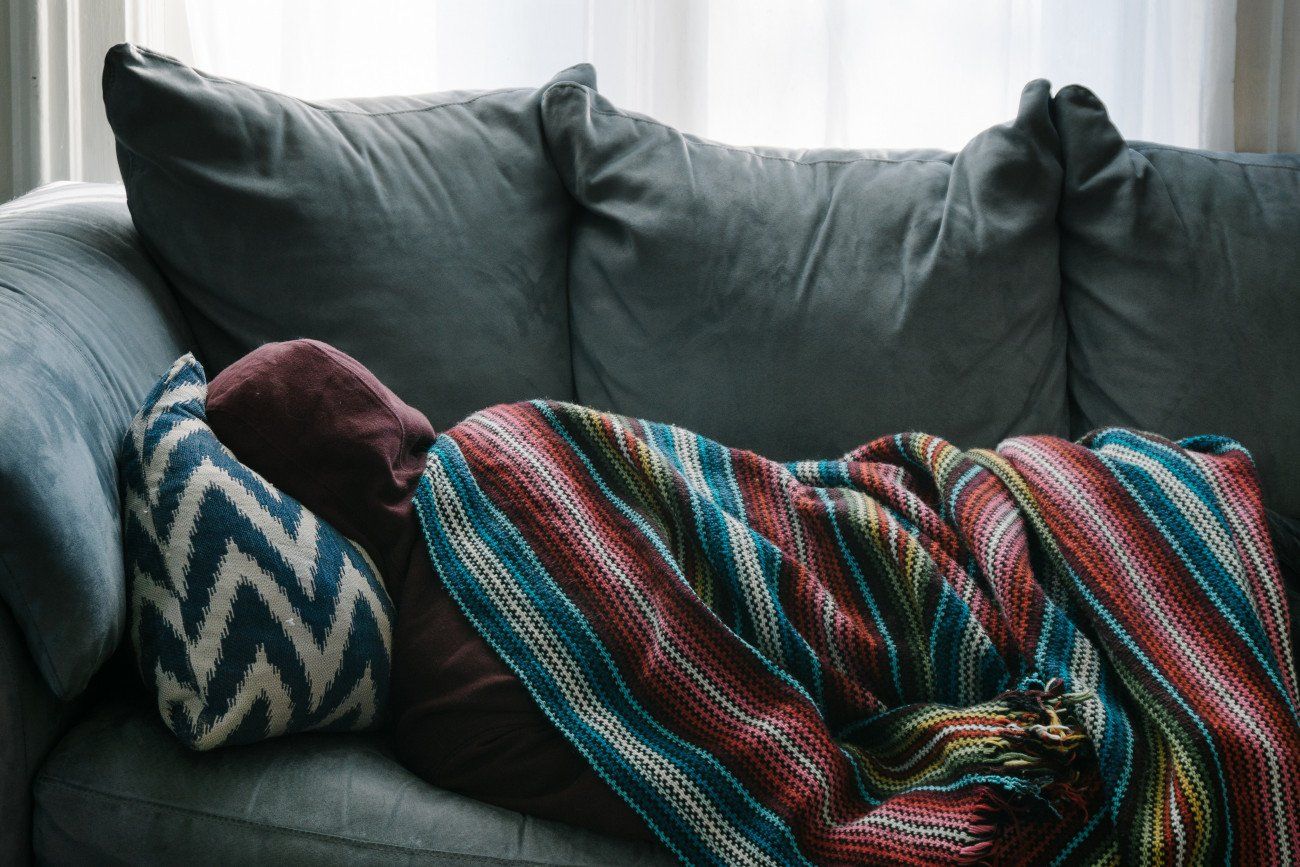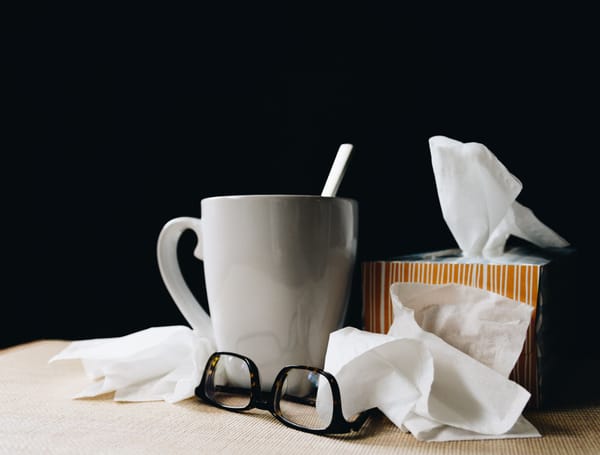Ugh. That scratchy feeling at the back of your throat. You’re run down and slogging through the day, dreaming of curling up on the couch with some Netflix so you can shake this cold off as soon as possible (or at least feel well enough to head back into work in the morning). Your sick days are about to run out (or already have), and you can’t afford to take unpaid days off.
With a little planning, there are a few simple things you can do to prepare for the next time you’re under the weather without sick days. The next time your life resembles a Nyquil ad, you can take the time you need to knock out your cold without having to worry about your bank account suffering.
Shore Up Your Immune System
First things first, avoid what creates the problem in the first place as much as you can — a weakened immune system. A great way to do this is to strategically supplement with some immune boosters:
- Medicinal Mushrooms can be added to your morning coffee or smoothie. They have multiple uses but make terrific immune system fortifiers
- Elderberry syrup is easily made at home if you don’t want to buy it and works like a charm for shortening the duration of a cold.
- Vitamin C can cut your chances of getting a cold in half, and there’s evidence to support it shortens the duration of a cold, too!
These magic bullets are the tip of the iceberg when it comes to strengthening your immune system. Even if you can’t swing one of these options, a healthy diet, consistent exercise routine, and enough sleep go a long way in preventing a cold or flu.
Stay Away From the Germiest Parts of the Office
While you may not be able to avoid these areas entirely, make sure you do your best to wash your hands when you head back to your own workspace. Regular washing, wiping, and sanitizing of surfaces can help reduce your chances of getting sick by a whopping 80%.
Without further ado, here are the spots you’re most likely to find viruses and bacteria lurking in your office:
- Breakroom sink faucet handles
- Microwave door handles
- Keyboards
- Refrigerator door handles
- Water fountain buttons
- Vending machine buttons

Shake It Off
In case you still find yourself coming down with something, all hope is not lost. There are a few things you can do to move it out of your system or at least make it more bearable.
Cooking when you’re sick is a drag, but it’s worth it for a pot of chicken soup. Science has confirmed what our mothers and grandmothers have known for ages — tucking into a hearty bowl does make you feel better. Chicken soup can reduce your upper respiratory cold symptoms and help you breathe better when you’re congested. It also improves the functioning of cilia, the little hair-like projections that work to keep pathogens and other bad guys out of your body. You don’t have to make it from scratch either; canned soup works as well as homemade.
Remember when we mentioned working out earlier? As long as you aren’t running a fever and feel up to it, exercising can raise levels of T cells which are your body’s first defense against getting sick. Just be careful you don’t overdo it — after a certain point, too much exercise can actually lower your immunity temporarily.
Lastly, consider this: before you run out to your nearest drugstore and clear the shelves, nothing you pick up is going to cure your cold. The average cold takes 7-10 days to go away, so remember that you’re just managing symptoms.
Pad Your Bank Account
Let’s switch gears — saving is crucial for everyone, and it becomes especially important if you’re creating your own self-employed sick pay or are replacing company sick pay because your days have run out.
With a solid savings plan, you can set aside enough pay in your rainy day fund. Even if you run out of sick days (or you don’t have them at all), you can afford to stay home when you’re really ill without taking a financial hit.
Ideally, you won’t have to dip into your savings much at all. But if you end up needing it, you’ll be glad you saved a little extra by making coffee at home or grabbing fewer takeout meals during the week.
It’s not optimal, but socking away your own sick pay beats not having any at all.
Be Super Responsible
It’s a good idea to check if your employer has a sickness policy. You may need to get documentation from your doctor and have it available when you do go back to work.
Another option: see if your employer will let you work from home while you’re getting over your cold. This way, you aren’t missing out on any pay. Who knows, maybe you can even convince your boss to let you work from home permanently?
What strategies have you used to avoid getting sick? How did you manage when your sick days ran out? Tell us about it in the comment section below!












Leave a reply
You must be logged in to post a comment.